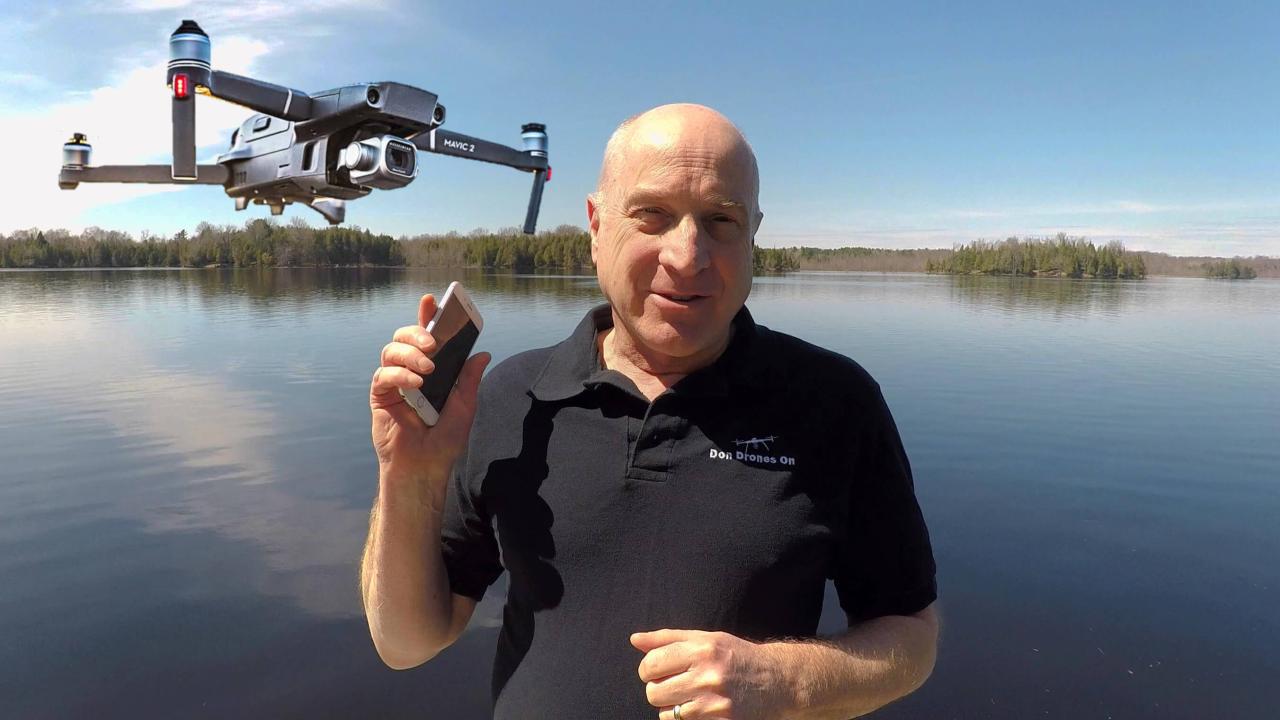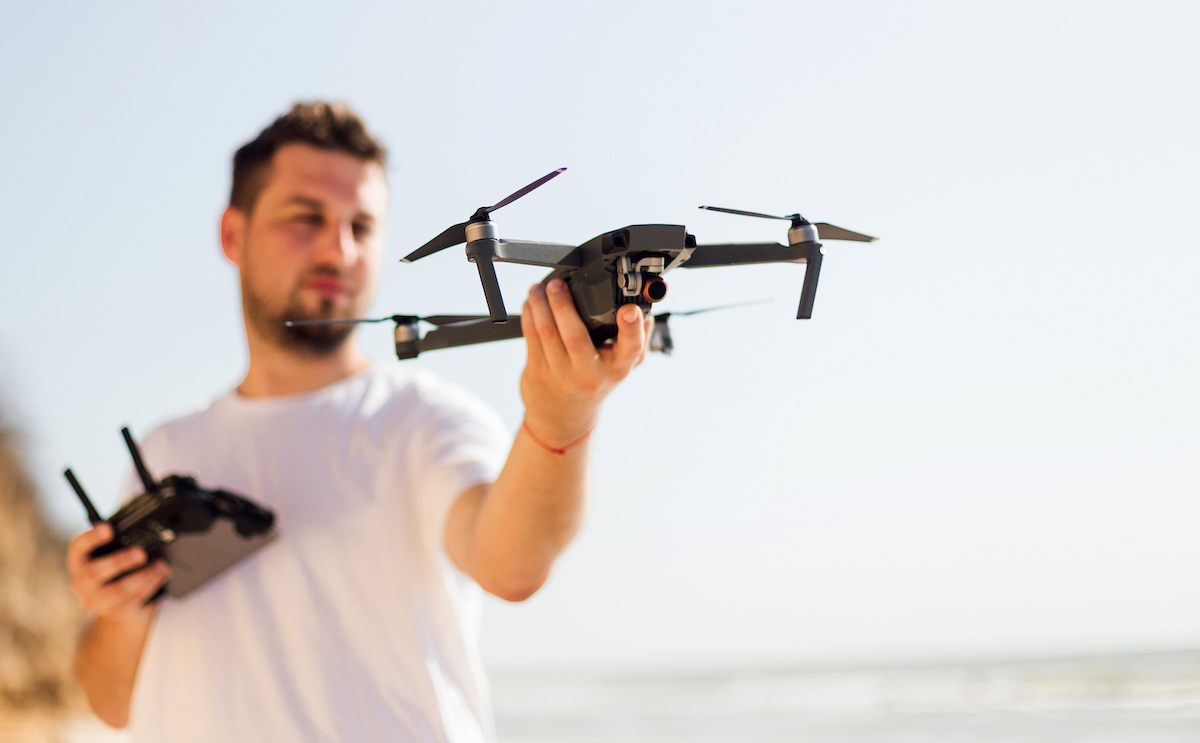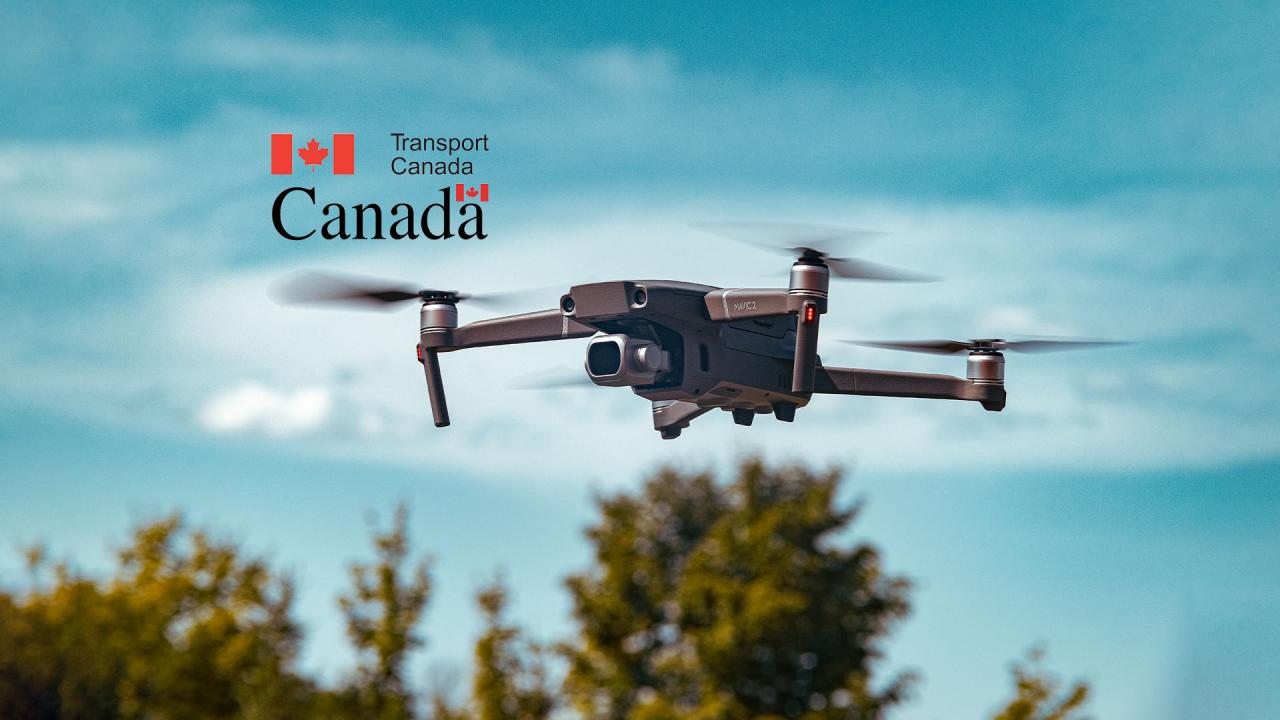Drone Pilot License Canada: So you want to fly drones legally in Canada? This isn’t just about buzzing around; it’s about understanding regulations, safety protocols, and the exciting possibilities this technology offers. We’ll break down the licensing process, explore different drone types and their uses, and help you navigate the legal landscape to become a responsible and successful drone pilot.
Getting your drone pilot license in Canada involves understanding different license classes, each with specific requirements and privileges. You’ll need to pass both knowledge and practical exams, and staying up-to-date on regulations is crucial for safe and legal operation. We’ll cover everything from applying for a license to renewing it, ensuring you’re fully prepared to take to the skies.
Licensing Requirements in Canada
Obtaining a drone pilot license in Canada is a crucial step for anyone operating drones beyond basic recreational use. The licensing process ensures safe and responsible operation, protecting both the pilot and the public. Different license classes cater to various drone sizes and operational complexities.
Drone Pilot License Classes
Transport Canada offers several classes of Remote Pilot Certificates (RPCs), each with specific requirements and privileges. These classes generally align with the size and operational complexity of the drone.
- Basic RPC: Suitable for smaller drones used for recreational purposes.
- Advanced RPC: Allows operation of larger and more complex drones, often involving commercial applications.
- Standard RPC: A middle ground between Basic and Advanced, suitable for intermediate drone operations.
Knowledge and Practical Tests
Each RPC class requires both a knowledge test and a practical flight test. The knowledge test assesses understanding of aviation regulations, safety procedures, and drone operation. The practical test evaluates the pilot’s ability to safely and competently operate a drone.
- Basic RPC: A simpler knowledge test focusing on basic regulations and safety. The practical test involves basic flight maneuvers.
- Advanced RPC: A more comprehensive knowledge test covering advanced regulations and operational complexities. The practical test includes more challenging maneuvers and scenarios.
- Standard RPC: A mid-level knowledge and practical test, bridging the gap between Basic and Advanced.
Application Process

Applying for a drone pilot license involves completing an online application through Transport Canada’s website, providing necessary documentation, and scheduling and passing the required knowledge and practical tests.
Renewing a Drone Pilot License
Renewing a drone pilot license typically involves a simple online process through Transport Canada. The renewal process usually requires confirmation of continuing competence and might involve a small fee.
Comparison of License Classes
| License Class | Drone Size/Weight Limits | Operational Restrictions | Knowledge Test Complexity |
|---|---|---|---|
| Basic RPC | Typically smaller, lighter drones | Generally limited to recreational use | Less complex |
| Standard RPC | Intermediate drone size and weight | More flexibility in operational areas | Moderate complexity |
| Advanced RPC | Larger, heavier drones; potentially commercial applications | Fewer operational restrictions; potential for complex operations | More complex and comprehensive |
Drone Regulations and Safety
Safe and responsible drone operation is paramount. Adherence to Canadian Aviation Regulations (CARs) is non-negotiable. Understanding these regulations and prioritizing safety is crucial to prevent accidents and maintain public trust.
Canadian Aviation Regulations (CARs)
The CARs Artikel specific rules and regulations for drone operation in Canada, covering aspects such as registration, licensing, flight restrictions, and operational procedures. These regulations are designed to ensure safe airspace and prevent conflicts with manned aircraft.
Flight Near Airports and Restricted Areas
Flying drones near airports or other restricted areas, such as military bases or sensitive infrastructure, is strictly prohibited without the necessary authorization. These areas have specific regulations to prevent interference with air traffic and ensure national security.
Thinking about getting your drone pilot license in Canada? It’s a great career move, but staying up-to-date on industry changes is key. Check out the latest developments by visiting the drone news today website for the most current information. Knowing the regulations and the evolving technology will help you ace your licensing exam and stay ahead in this exciting field.
Maintaining Visual Line of Sight (VLOS)
Maintaining visual line of sight (VLOS) is a fundamental safety requirement for most drone operations. This means the pilot must be able to see the drone at all times during flight. Loss of VLOS can lead to accidents and loss of control.
Safety Procedures in Various Weather Conditions, Drone pilot license canada
Adverse weather conditions significantly impact drone safety. Strong winds, rain, snow, or fog can affect drone stability and control. Pilots should understand the limitations of their drones and avoid flying in hazardous weather.
- Avoid flying in high winds.
- Do not fly in rain or snow.
- Ensure good visibility.
Common Drone Accidents and Prevention
Common drone accidents often result from pilot error, such as loss of VLOS, failure to check weather conditions, or ignoring airspace restrictions. Proper training, adherence to regulations, and pre-flight checks can significantly reduce the risk of accidents.
- A drone crashing into a power line due to loss of VLOS.
- A drone colliding with another aircraft due to ignoring airspace restrictions.
Types of Drones and Their Applications
The diversity of drones available reflects their wide-ranging applications across various industries. Understanding these types and their capabilities is crucial for selecting the right drone for a specific task.
Drone Types and Capabilities
Drones vary significantly in size, weight, features, and capabilities. Some are designed for photography and videography, while others are built for heavier lifting or specialized tasks like inspections or delivery.
- Multirotor Drones (Quadcopters, Hexacopter): Versatile, commonly used for photography, videography, and inspections.
- Fixed-Wing Drones: Longer flight times, ideal for surveying large areas.
- Hybrid Drones: Combine features of multirotor and fixed-wing drones.
Drone Applications in Various Industries
Drones are revolutionizing various industries, offering efficient and cost-effective solutions. Their applications are constantly expanding.
- Agriculture: Crop monitoring, spraying, and precision farming.
- Construction: Site surveys, progress monitoring, and inspections.
- Photography and Videography: Aerial photography and videography for various purposes.
Comparison of Drone Models
Choosing the right drone model depends on the specific application and requirements. Factors to consider include flight time, payload capacity, camera quality, and features.
Hypothetical Drone Operation Plan
A hypothetical plan for using drones in precision agriculture might involve mapping a field, identifying areas needing attention, and applying targeted treatments based on the drone’s data.
Factors to Consider When Choosing a Drone
Several factors influence drone selection, including budget, intended application, required flight time, payload capacity, and camera features.
Thinking about getting your drone pilot license in Canada? It’s a pretty cool field! While you’re studying up, maybe take a break and check out this site for some fun word puzzles: 10 letter words starting with ai. It’s a great way to unwind before getting back to mastering those regulations for your drone pilot license.
Good luck with your studies!
Insurance and Liability
Drone insurance is crucial for protecting yourself financially from potential accidents, damages, or legal liabilities. Understanding the different types of coverage and implications is essential.
Importance of Drone Insurance
Drone insurance provides financial protection against accidents, third-party liability, and property damage. It’s a necessary safeguard against potential financial losses.
Types of Drone Insurance Coverage
Various insurance policies cater to different needs and levels of risk. Policies may cover liability, damage to the drone, and other related expenses.
Liability Implications for Drone Pilots
Drone pilots are legally responsible for any damage or injury caused by their drone operations. Insurance helps mitigate these liabilities.
Scenarios Where Drone Insurance is Crucial
Scenarios such as a drone crashing into a house, causing property damage, or injuring someone, highlight the importance of insurance.
Checklist for Choosing Drone Insurance
When choosing drone insurance, consider factors such as coverage limits, exclusions, and the reputation of the insurance provider.
Resources and Training
Accessing quality training and resources is crucial for becoming a safe and competent drone pilot. Numerous reputable organizations and online resources are available.
Reputable Drone Pilot Training Organizations
Several organizations across Canada offer comprehensive drone pilot training programs, covering both theoretical and practical aspects of drone operation.
Curriculum and Cost of Training Programs

Training programs vary in curriculum and cost, depending on the level of certification and the organization offering the course.
Online Resources and Study Materials
Numerous online resources, including websites, videos, and study guides, are available to supplement formal training.
Preparing for Knowledge and Practical Exams
Effective preparation for the exams involves studying the relevant regulations, practicing flight maneuvers, and familiarizing oneself with the testing procedures.
Frequently Asked Questions
- What are the age requirements for obtaining a drone pilot license?
- How much does a drone pilot license cost?
- How long is the validity of a drone pilot license?
- What are the penalties for operating a drone illegally?
Future of Drone Technology in Canada: Drone Pilot License Canada
The drone industry is rapidly evolving, with continuous advancements in technology and expanding applications. Understanding these trends is crucial for staying ahead in this dynamic field.
Advancements in Drone Technology
Advancements include improved battery technology, autonomous flight capabilities, enhanced sensor technology, and increased payload capacity.
Future Regulations and Licensing Requirements

Future regulations may adapt to accommodate the evolving capabilities of drones and address new safety considerations.
Thinking of getting your drone pilot license in Canada? It’s a great way to open up exciting opportunities. Before you take to the skies, remember reliable internet access can be crucial for pre-flight checks and post-flight data analysis; you might want to check out the availability of bc ferries wifi if your flight plan involves those routes.
Knowing your options for connectivity is a key part of responsible drone operation, so plan accordingly for your drone pilot license journey.
Evolving Role of Drone Pilots
The role of drone pilots is expanding, encompassing various specialized applications and requiring advanced skills and knowledge.
Innovative Drone Applications
Innovative applications include drone-based delivery services, infrastructure inspections, environmental monitoring, and search and rescue operations.
Future of Drone Operations in a Canadian City
A Canadian city in the future might see integrated drone delivery systems, autonomous drone-based traffic monitoring, and widespread use of drones for various municipal services.
End of Discussion

Successfully navigating the world of drone piloting in Canada requires a blend of knowledge, skill, and responsible operation. From understanding the various license classes and regulations to selecting the right drone for your needs and securing appropriate insurance, we’ve covered the essential steps. Remember, safety is paramount, and adhering to Canadian Aviation Regulations is non-negotiable. Soar responsibly, and enjoy the exciting possibilities that drone technology offers!
FAQs
What’s the age requirement for a drone pilot license in Canada?
There’s no minimum age, but certain licenses may require supervision depending on the drone class.
How much does a drone pilot license cost?
The cost varies depending on the license class and any associated training courses.
Can I fly my drone at night?
Night flights are generally restricted unless you have specific authorization and meet additional requirements.
What happens if I have an accident with my drone?
Reporting accidents is mandatory. Appropriate insurance coverage is highly recommended to mitigate liability.
Where can I find approved drone training programs?
Transport Canada’s website lists approved training providers. Look for programs that cover the specific license class you’re pursuing.
